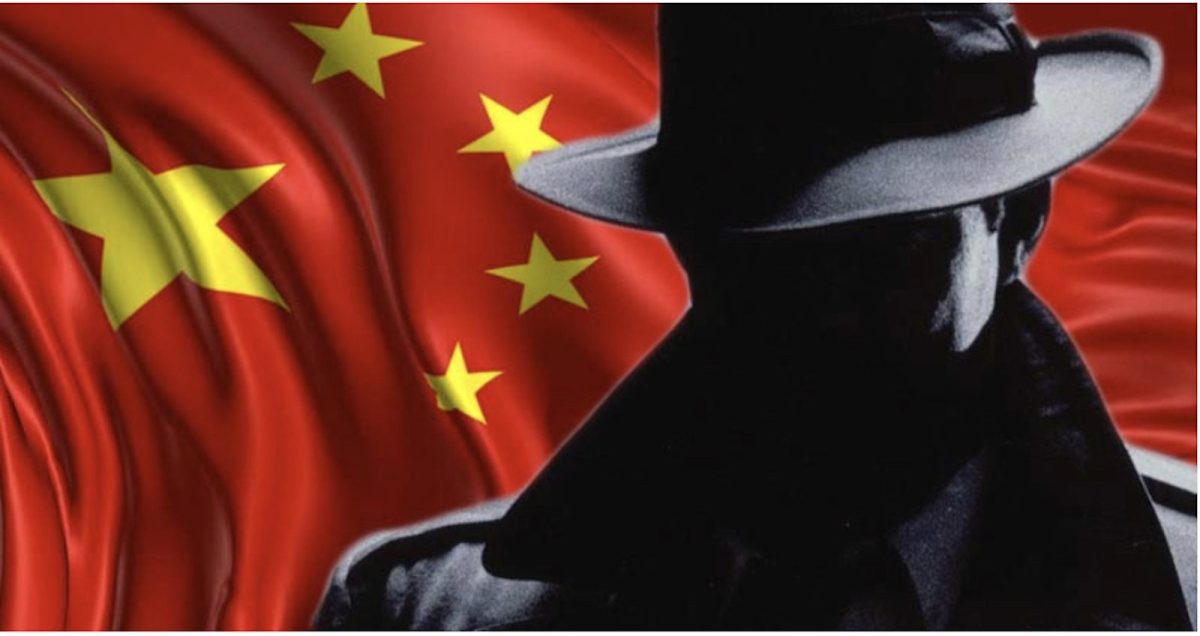Global Courant 2023-05-03 03:02:10
The top United States diplomat in China has asked Beijing for clarification on the newly amended counterintelligence law, which he says could make illegal some of the common duties of American businessmen, academics and journalists in the country.
The Standing Committee of the National People’s Congress (NPC) passed an amendment on April 26 to strengthen China’s anti-intelligence law. The amended law takes effect on July 1.
The definition of perpetrators is broadened from people who “join or accept duties of” an espionage organization to those who “take refuge in it”. Coverage will also be expanded from “state secrets and intelligence” to “other documents, data, materials and items related to national security and interests.”
“This is a law that could potentially make illegal the kind of everyday activities companies are supposed to be doing in China,” U.S. Ambassador to China Nicholas Burns said Tuesday at a webinar hosted by The Stimson Center, a Washington-based think tank. “We need to know more about it, so we’re asking questions here in Beijing.”
US Ambassador to China Nicholas Burns. Photo: Ministry of Foreign Affairs
Burns said U.S. companies should do due diligence before agreeing to major investment deals, while also having full access to economic data to make forecasts.
“The law may jeopardize academic research. Professors and journalists could get caught up in this. But what we know so far is not positive,” he said.
In March, five Chinese employees of the Mintz Group, an American due diligence firm, were arrested in Beijing.
Bain & Company, a Boston-based management consulting firm, said last week that Chinese police questioned its staff in Shanghai and seized some computers and smartphones in an operation three weeks ago.
“We are very concerned about this. We have expressed our concerns,” said Burns. “We believe that American companies should be free from government harassment here. And the rule of law must prevail.” Businesses should not be targeted due to “political and competitive differences in the US-China relationship”.
He said the US hopes that US businessmen, journalists and academics can feel safe performing their duties in China.
“Companies from all countries are welcome for economic and trade cooperation in China,” said Mao Ning, a spokesman for China’s foreign ministry. said last Friday. “We are committed to fostering a world-class, market-driven, law-based business environment. China is a law-based country. All companies in China must operate according to the law.”
Mao then said she could not comment on the Bain case due to lack of information.
Investors feel unwelcome
The Wall Street Journal reported on Sunday that in recent months, Chinese authorities have restricted or completely shut down overseas access to various databases containing company registration information, patents, tender documents, academic journals and official statistical yearbooks.
The US Chamber of Commerce said in a rack on April 28 that the amendment to China’s anti-intelligence law “is a matter of serious concern to the investment community and likely their local business partners in China.”
It said foreign investment will not be welcome in an environment where risks cannot be properly assessed and legal uncertainties are growing.
“We are closely monitoring enhanced regulatory scrutiny of U.S. professional services firms and due diligence firms in China,” it said. “The services provided by these firms are fundamental to building investor confidence in any market, including China.”
Global investors drew a net $3.17 billion of Chinese stocks through Hong Kong’s Stock Connect during the five trading days last week, the Wall Street Journal reported April 28, citing an analysis by Exante Data.
China looks at new money
After then-US House Speaker Nancy Pelosi defied Beijing’s warning and visited Taiwan last August, the Chinese government cut off all communication channels with the US for several months. The two sides resumed dialogue on Taiwan, Ukraine, climate change and trade issues after US President Joe Biden and Chinese President Xi Jinping met in Bali last November.
However, tensions between the US and China rose again after a Chinese “spy balloon” appeared in North American skies in late January. Beijing was also disappointed by falling orders and slowing investment from the West.
American sailors fish the collapsed Chinese balloon out of the Atlantic Ocean off South Carolina. Photo: US Navy
In the first quarter, Chinese exports to the European Union fell 7.1% year-on-year, while exports to the US fell 17%, according to dollar-denominated figures released by the General Administration of Customs on April 13 . offset by the increase in exports to the ASEAN countries, Africa and Russia.
In US dollar terms, the year-on-year growth rate of China’s foreign direct investment (FDI) was just 0.5% in the first quarter, significantly lower than 32% in the same period last year.
The Politburo of the Central Committee of the Chinese Communist Party said China will make attracting foreign investment a higher priority to boost economic growth and domestic demand.
“Currently, our country’s economy continues to improve, but the endogenous driving force is still not strong enough while domestic demand remains insufficient,” the politburo said in a statement following a meeting chaired by Secretary-General Xi Jinping last Friday. “China’s economic transformation and modernization is facing new obstacles, while the promotion of high-quality development still has to overcome many difficulties and challenges.”
“Attracting foreign investment should be placed in a more important position and foreign trade and investment should be stabilized,” it said. “It is necessary to help qualified free trade pilot zones and ports meet the requirements of international high-level economic and trade regulations so that they can implement reform and opening up.”
The government of Shanghai said it will optimize its financial services and encourage the participation of foreign investors in China’s financial markets, which will support the fundraising activities of Chinese technology, trading and shipping companies.
Media reports said last month that Biden will soon sign an executive order banning US companies and private equity and venture capital funds from investing in Chinese microchips, artificial intelligence, quantum computing, biotechnology and clean energy projects and companies.
Read: More US companies looking elsewhere: AmCham China
Follow Jeff Pao on Twitter at @jeffpao3
Similar:
Loading…








